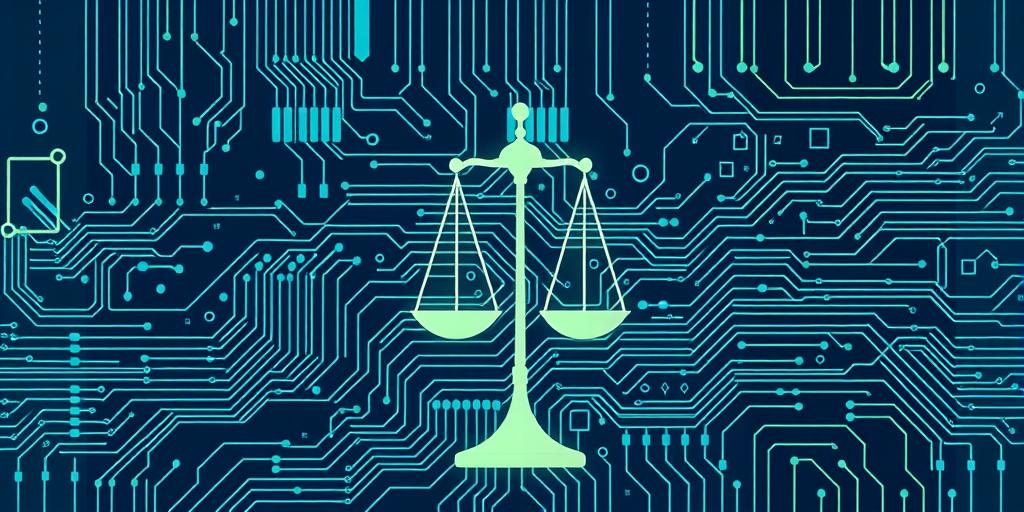The Ethics of Algorithmic Decision-Making
In an increasingly data-driven world, algorithms are making decisions that significantly impact our lives. From loan applications and job recruitment to criminal justice and healthcare, algorithmic decision-making (ADM) systems are becoming ubiquitous. While these systems offer the potential for increased efficiency and objectivity, they also raise critical ethical concerns that must be addressed.
What is Algorithmic Decision-Making?
Algorithmic decision-making refers to the use of automated systems that employ algorithms to process data and make decisions or recommendations. These algorithms are designed to identify patterns, predict outcomes, and optimize processes based on the data they are trained on.
The Benefits of Algorithmic Decision-Making
ADM systems offer several potential advantages:
- Efficiency: Algorithms can process vast amounts of data much faster than humans, leading to quicker decisions.
- Objectivity: Algorithms can reduce human biases and inconsistencies in decision-making.
- Consistency: Algorithms apply the same criteria to all cases, ensuring uniform treatment.
- Scalability: ADM systems can easily handle large volumes of decisions, making them suitable for widespread use.
Ethical Concerns
Despite these benefits, ADM systems also present significant ethical challenges:
- Bias and Discrimination:
- Algorithms are trained on data, and if that data reflects existing societal biases, the algorithm will perpetuate and even amplify those biases.
- This can lead to discriminatory outcomes in areas such as hiring, lending, and criminal justice.
- Transparency and Explainability:
- Many ADM systems, particularly those based on complex machine learning models, are "black boxes." It can be difficult to understand how they arrive at their decisions.
- Lack of transparency can make it challenging to identify and correct biases or errors.
- Accountability and Responsibility:
- When an algorithm makes a harmful decision, it can be difficult to assign responsibility. Is it the programmer, the data provider, or the organization using the algorithm?
- Without clear lines of accountability, it is hard to ensure that ADM systems are used ethically.
- Privacy:
- ADM systems often rely on large amounts of personal data, raising concerns about privacy and data security.
- The collection, storage, and use of this data must be carefully regulated to protect individuals' rights.
- Impact on Human Autonomy:
- Over-reliance on ADM systems can erode human judgment and autonomy.
- Individuals may become overly dependent on algorithmic recommendations, leading to a loss of critical thinking and decision-making skills.
Addressing the Ethical Challenges
To ensure that ADM systems are used ethically, several steps must be taken:
- Data Auditing and Bias Detection:
- Regularly audit the data used to train algorithms to identify and correct biases.
- Use techniques such as adversarial testing to assess the fairness of ADM systems.
- Transparency and Explainability:
- Develop methods for making ADM systems more transparent and explainable.
- Explainable AI (XAI) techniques can help users understand how algorithms arrive at their decisions.
- Accountability and Governance:
- Establish clear lines of accountability for the development and use of ADM systems.
- Implement governance frameworks that ensure ethical considerations are integrated into the design and deployment of algorithms.
- Privacy Protection:
- Implement strong data protection measures to safeguard personal information.
- Adhere to privacy regulations such as GDPR and CCPA.
- Human Oversight:
- Maintain human oversight of ADM systems to ensure that algorithms are used responsibly and ethically.
- Humans should have the ability to override algorithmic decisions when necessary.
Conclusion
Algorithmic decision-making offers tremendous potential for improving efficiency and objectivity, but it also raises significant ethical concerns. By addressing these challenges proactively, we can harness the benefits of ADM while safeguarding human values and rights. A multi-faceted approach involving data auditing, transparency, accountability, privacy protection, and human oversight is essential to ensure that algorithms are used ethically and responsibly.









